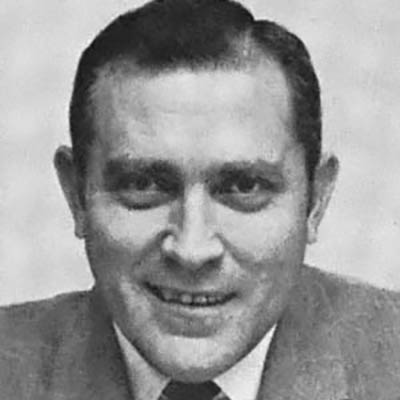About Charles Griffin
Charles H. Griffin was born May 9, 1926, on a farm near Utica, in South Mississippi, to Charles Farris and Nora (Shelton) Griffin. He attended Wise Elementary School and graduated from Utica High School in 1943, where his classmates named him "Outstanding Senior." He then attended Hinds Junior College, located in Raymond, Mississippi, where he paid his own way by working in various odd jobs. He joined the United States Navy in 1944 and served in the Pacific Theater of World War II. He left the Navy in 1946 wit the rank of Quartermaster Third Class. During his service, he was aboard the battleship Tennessee at Okinawa and later on the St. George, and the Floyd's Bay. Griffin then attended Mississippi State College (University), graduating in 1949 with a B. S. degree in Public Administration.
Griffin then followed his father and grandfather into the political arena. His father had been a supervisor in Hinds County and his grandfather had been a Hinds County representative in the Mississippi legislature. Griffin joined the staff of Mississippi U. S. Congressman John Bell Williams on July 1, 1949, and became Williams' administrative assistant in 1955. During his time in Washington, D. C., he met and married in 1953 Angie Pedrotti of Gloucester, Massachusetts. Her mother would later become part of their household in Utica.
In 1967, Congressman Williams returned to Mississippi to run for governor, after the National Democratic Party stripped him of his seniority for not supporting the party in the presidential election. Williams won and became governor in January 1968. Charles Griffin, who by that time had accumulated much Capitol Hill experience, ran for Williams seat in a special election on March 12, 1968. He finished Williams' term and was subsequently elected to two full terms in the House. He decided not to seek a third term in 1972, due in part to his wife's ill health and perhaps because he had grown tired of Washington after his twenty-three plus years there.
Griffin's service in the house included being a member of the Committee on Banking and Currency, including assignments to that committee's subcommittees on Small Business, Bank Supervision and Insurance, and International Trade. His other major committee assignment was the Merchant Marine and Fisheries, which included membership on the Oceanography and the Coast Guard subcommittees.
A typical Southern conservative of his time, Griffin supported local control of public schools, including a Freedom of Choice policy, and he sponsored a Constitutional Amendment that would have prohibited the Federal Government from infringing upon rights of states to set policies regarding public education, public health, and elections. He also supported economic development in Mississippi, cutbacks in foreign aid, reduction of Federal spending and he opposed income tax increases. He wrote legislation that would have given the president authority to control credit, to lower interest rates, and to hold down inflation. He further supported legislation to finance rural housing, small businesses, and protecting the dollar's integrity.
After leaving the House, he and Angie moved back to Utica, he donated his papers to Mississippi State University on September 19, 1976, and he demonstrated that he was not yet ready to leave the political arena. He campaigned for William Winter's gubernatorial bid in the mid 1970s, and then he became secretary of the senate in the Mississippi legislature. He was working at that job, when he suffered a fatal heart attack at his Utica home on September 10, 1989. He is buried in the Griffin Cemetery near Utica. As of early 2007, Angie still lived in Utica.
A few months after Griffin's death, a stretch of state highway 18, connecting Raymond and Port Gibson, was named the Charles Hudson Griffin Memorial Highway.

